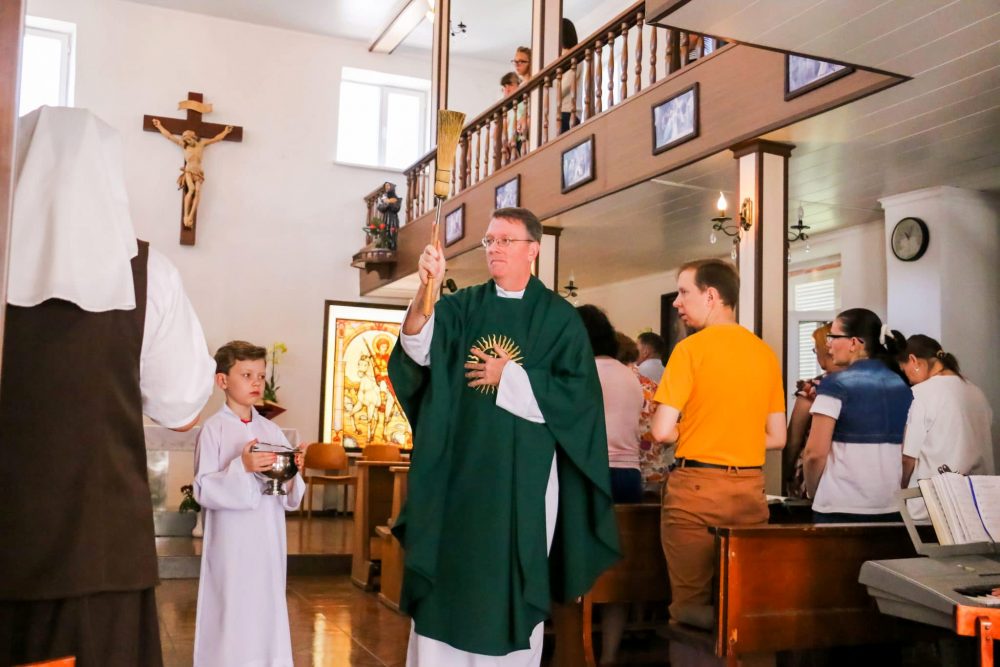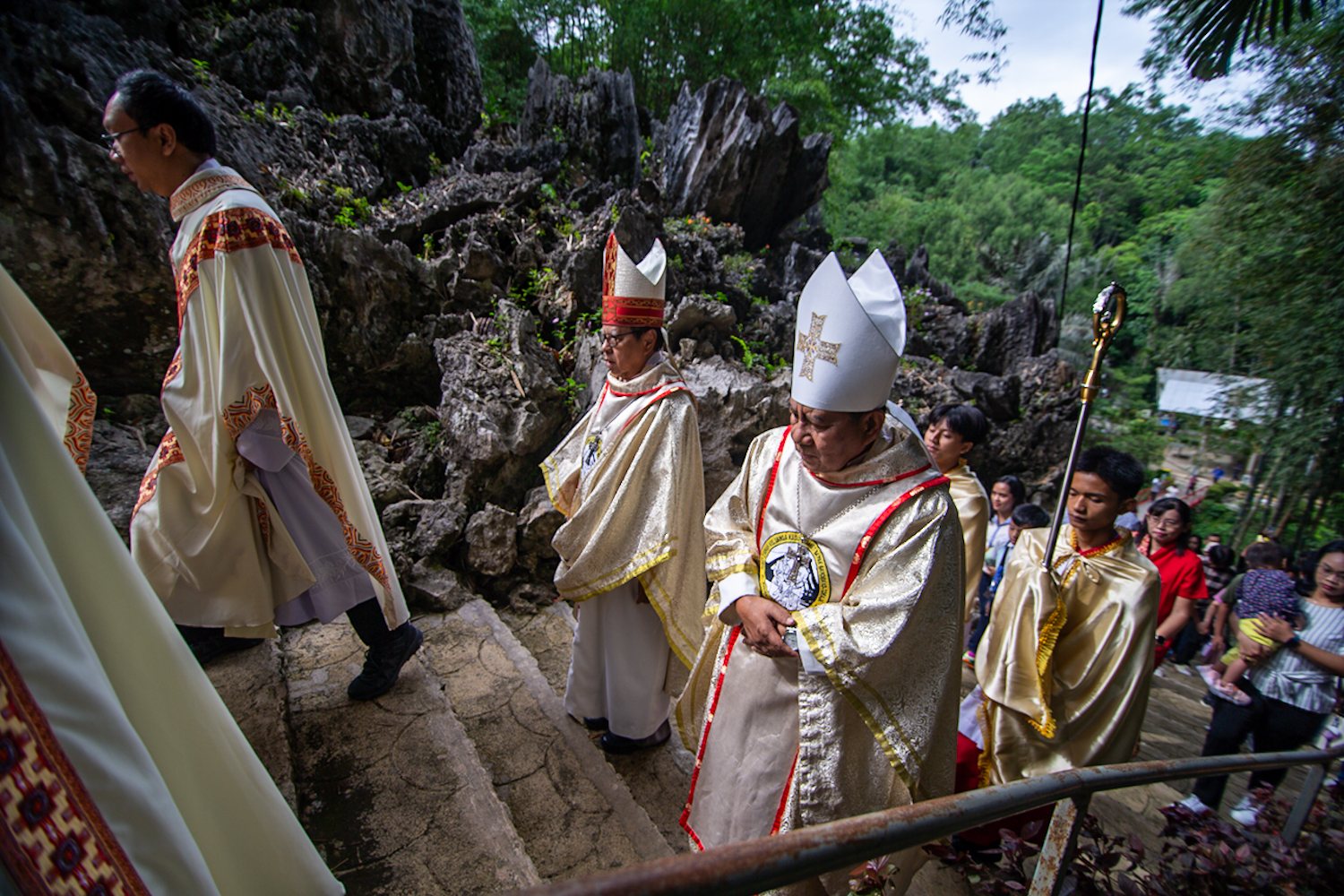Joaquim Magalhães de Castro
Kyrgyzstan will soon have its first Catholic cathedral and it will be erected right in the center of the capital Bishkek. The undertaking should be completed within three years and will be a significant milestone for the Catholic community in that Central Asian country.
Until now, the only Catholic church in Bishkek is located in an extremely peripheral area and (also because we are talking about a country with a Muslim majority) some people are not even aware of its existence. Its construction is due to a license granted in 1969 by the Soviet authorities to some German Catholics, a community formed by people deported to that region during the Second World War, the so-called “Volga Germans”.
“The spaces we have now are very limited and do not allow us to carry out all the activities we would like. Thanks to the new facilities adjacent to the cathedral, which we will have at our disposal, we will be able to propose a series of cultural initiatives, prayer meetings and Bible reading, aimed at different age groups,” Damian Wojciechowski SJ, a Jesuit brother, bursar of the Administration Apostolic Church of Kyrgyzstan told Fides News Agency.
The project to build the Catholic cathedral is part of the remarkable urban development that has characterized the capital city of Bishkek in recent years. Valerij Dil, adviser to the President of the Republic of Kyrgyzstan and also to the Apostolic Administration, referred to the “international significance” in the presentation of the project and recalled the “democratic principles and freedom to profess one’s own faith” well expressed in the country’s constitution. However, from time to time some episodes demonstrate that this matter, that of religious freedom, still remains a gray area.
On the 26th, during the Eucharistic celebration, some police officers and members of the State Committee for National Security entered the Catholic church of Talas (Saint Nicholas parish) and fined a Slovak nun, accusing her of “spreading Roman Catholicism” among residents of Talas without authorization from the State Commission for Religious Affairs. The decision to fine this sister is certainly due to the ignorance of the personnel involved in the operation, as the nun did not violate the rules in force in Kyrgyzstan. In fact, she was just reading from the ambo one of the texts provided for in the liturgical calendar, that is, she was not preaching or presiding over the celebration of the Eucharist, actions that a foreign citizen can only carry out if he has a special certificate issued by competent government bodies.

The Kyrgyz Story
- The Catholic Church has been actively working in Kyrgyzstan, providing social services, and helping the underprivileged despite poverty and corruption being endemic in the country.
- The Catholic community in Kyrgyzstan is relatively small, with several thousand Catholics living in the country and gathering in nine parishes.
- The new cathedral is part of the urban development that has characterized the capital city of Bishkek in recent years.
During the press conference for the presentation of the project on the new cathedral, the Apostolic Administrator, Father Anthony James Corcoran said that Pope Francis blessed the first stone of the future cathedral while in Nur Sultan, during his recent apostolic journey to Kazakhstan. On that occasion, the Pontiff reminded all those present of the importance of the mission entrusted to the Catholic presence in Kyrgyz society: to help the many in need. The Apostolic Administrator also highlighted that Catholics in Kyrgyzstan share with their fellow Muslims the objective of “making the world around us better”.
In the eight years that the parish of Bishkek was subject to the jurisdiction of the Apostolic Administration in Karaganda (Kazakhstan), in 1999, John Paul II erected a mission sui iuris in Kyrgyzstan, and Benedict XVI instituted the Apostolic Administration in 2006, which is still in operation. Recently, some Missionary Sisters of Charity arrived in Bishkek, the order founded by Mother Teresa of Calcutta, which will open its own convent in the capital.
Gathered in nine parishes, several thousand Catholics currently live in Kyrgyzstan, of which about 500 regularly attend the three main churches in the country. Namely, in Biskek, Jalal-Abad and Talas. The latter, reconsecrated in 2019, was the first to be reopened after the end of the USSR as a proper church. Many local Catholics live far from parishes and gather to pray in private homes, receiving periodic visits from foreign missionaries (from Slovenia, Vietnam, the United States, Kazakhstan and Poland) who work in Kyrgyzstan.
In a country where poverty and corruption are endemic, the Catholic Church has always demonstrated its willingness to work at the service of the entire population. Their social activities never stopped, not even during the 2010 civil war or the recent pandemic, and currently, among a wide range of activities in the country, they run a shelter for single mothers and another for disabled children and young people. “Announcing the Gospel also means helping the new generations to orient their lives towards building a more just and welcoming society for all,” concludes Father Damian Wojciechowski.


 Follow
Follow


